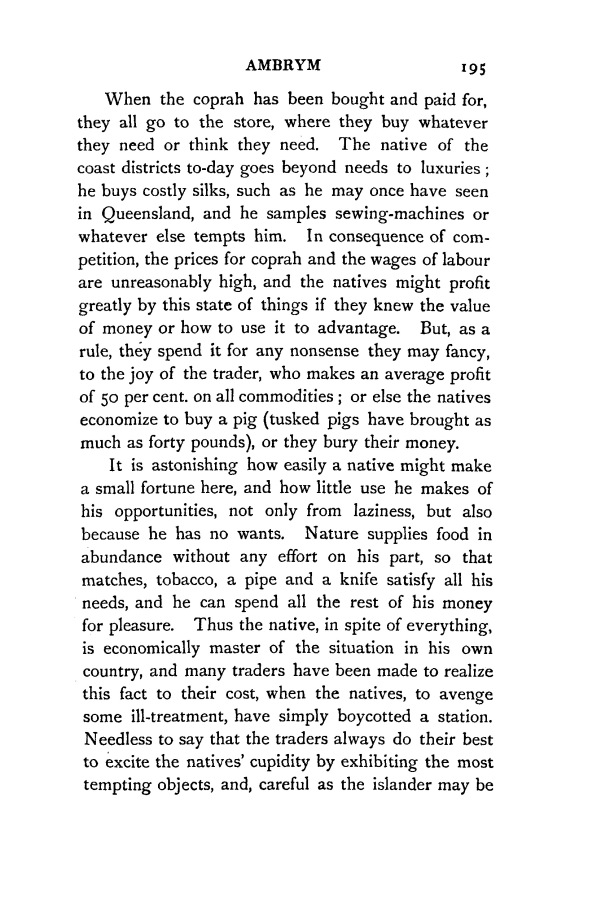|
|  [Note: this transcription was produced by an automatic OCR engine]
AMBRYM :95
When the coprah has been bought and paid for,
they all go to the store, where they buy whatever
they need or think they need. The native of the
coast districts to-day goes beyond needs to luxuries;
he buys costly silks, such as he may once have seen
in Queensland, and he samples sewing-machines or
whatever else tempts him. In consequence of com-
petition, the prices for coprah and the wages of labour
are unreasonably high, and the natives might profit
greatly by this state of things if they knew the value
of money or how to use it to advantage. But, as a
rule, they spend it for any nonsense they may fancy,
to the joy of the trader, who makes an average profit
of 50 per cent. on all commodities ; or else the natives
economize to buy a pig (tusked pigs have brought as
much as forty pounds), or they bury their money.
It is astonishing how easily a native might make
a small fortune here, and how little use he makes of
his opportunities, not only from laziness, but also
because he has no wants. Nature supplies food in
abundance without any effort on his part, so that
matches, tobacco, a pipe and a knife satisfy all his
needs, and he can spend all the rest of his money
for pleasure. Thus the native, in spite of everything,
is economically master of the situation in his own
country, and many traders have been made to realize
this fact to their cost, when the natives, to avenge
some ill-treatment, have simply boycotted a station.
Needless to say that the traders always do their best
to excite the natives’ cupidity by exhibiting the most
tempting objects, and, careful as the islander may be
|